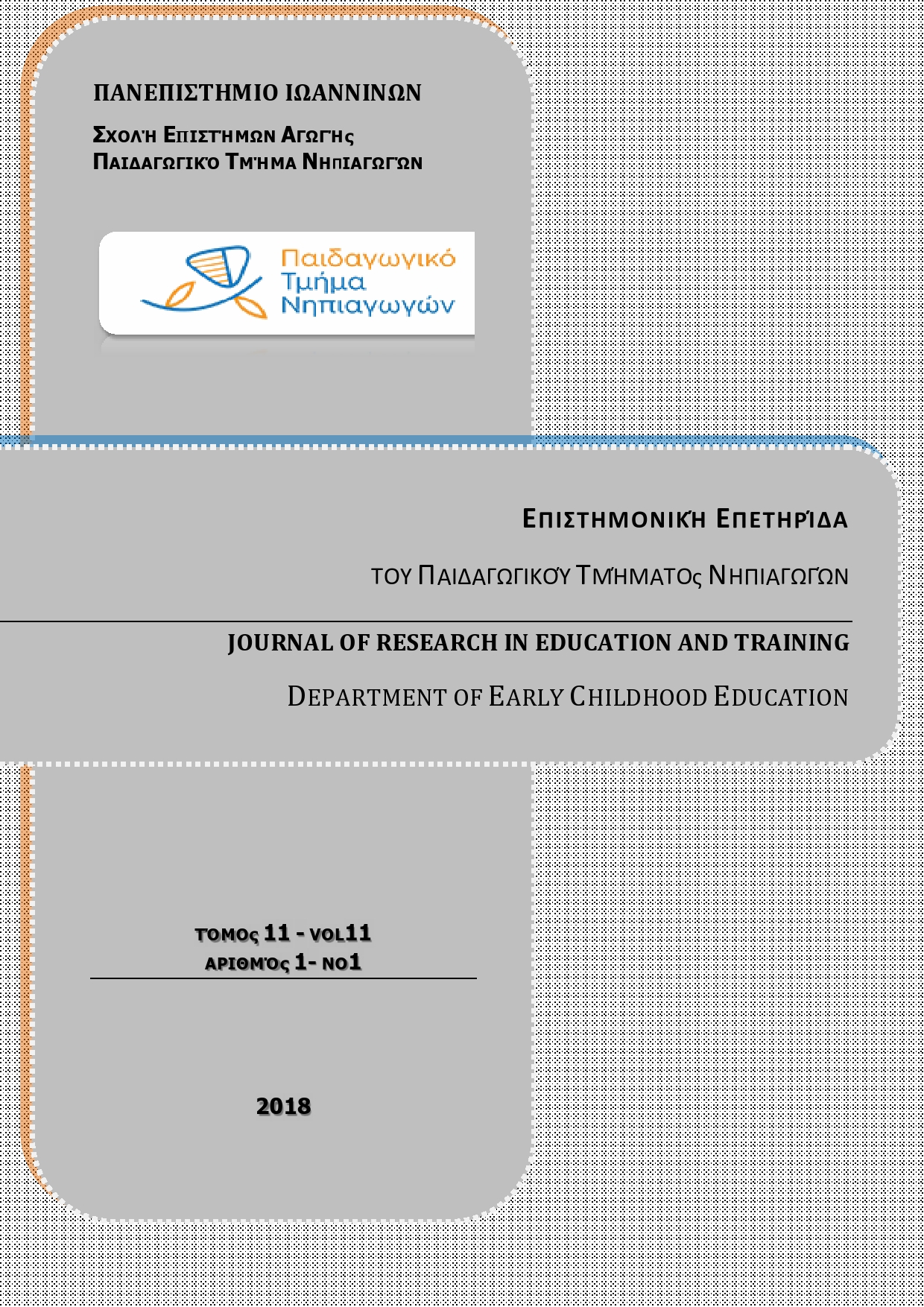The suggestions kindergarteners make about environmental issues: the case of wasting electricity

Abstract
The issue of energy and its use constitutes a crucial contemporary issue with social, environmental and economic impacts. School education should play a key role in achieving energy saving towards a sustainable way of living. This study aimed at exploring the kindergarteners’ thoughts, identifying their concepts and mental models, on collective and personal ways of energy saving, and also, at exploring how these mental models might be interrelated. Twenty seven 6-year-olds attending two state schools located in Volos, a small provincial town in Greece, participated in the research. The content analysis of the data collected through interviews conducted with the aid of photographs and other visual means, indicates that two mental models held by young children appear to dominate: one that orientates to the short-term addressing of the energy waste and one that orientates to the prevention of the problem and relates to preventive actions. Moreover, the research indicates that these two kinds of thinking are related. Finally, implications for education are also discussed in this paper.
Article Details
- How to Cite
-
Iliopoulou, I. (2018). The suggestions kindergarteners make about environmental issues:: the case of wasting electricity. Journal of Research in Education and Training, 11(1), 77–102. https://doi.org/10.12681/jret.14137
- Issue
- Vol. 11 No. 1 (2018)
- Section
- Articles

This work is licensed under a Creative Commons Attribution-NonCommercial-ShareAlike 4.0 International License.
Authors who publish with this journal agree to the following terms:
- Authors retain copyright and grant the journal right of first publication with the work simultaneously licensed under a Creative Commons Attribution Non-Commercial License that allows others to share the work with an acknowledgement of the work's authorship and initial publication in this journal.
- Authors are able to enter into separate, additional contractual arrangements for the non-exclusive distribution of the journal's published version of the work (e.g. post it to an institutional repository or publish it in a book), with an acknowledgement of its initial publication in this journal.
- Authors are permitted and encouraged to post their work online (preferably in institutional repositories or on their website) prior to and during the submission process, as it can lead to productive exchanges, as well as earlier and greater citation of published work (See The Effect of Open Access).


